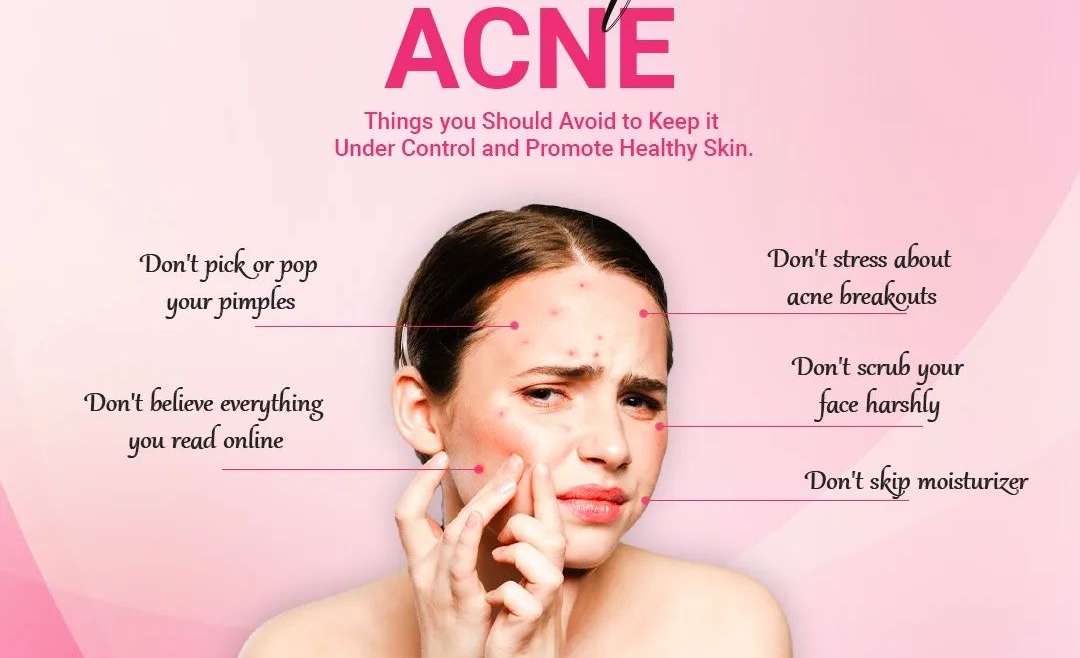Are you struggling with acne? Here are some essential things you should avoid to promote healthy skin:
Introduction
Acne is a prevalent skin condition affecting millions worldwide, characterized by pimples, blackheads, and cysts. While it’s tempting to try every new treatment, knowing what to avoid can be crucial in managing and reducing breakouts.
1. Don’t Pick or Pop Pimples
Picking at acne can lead to scarring and infection. It damages the skin barrier and can push bacteria deeper, worsening inflammation. Instead, use treatments containing benzoyl peroxide or salicylic acid to help them heal faster.
2. Avoid Overwashing Your Face
While keeping your face clean is important, overwashing can strip the skin of its natural oils, leading to dryness and irritation. This can cause the skin to produce more oil, exacerbating acne. Stick to cleansing your face twice a day with a mild cleanser.
3. Don’t Use Harsh Scrubs
Harsh scrubs can damage sensitive skin and increase redness and inflammation. Opt for gentle exfoliants that won’t irritate the skin, such as those containing alpha or beta hydroxy acids, which can help to clear pores without abrasion.
4. Avoid Heavy Makeup
Heavy, oil-based makeup can clog pores and trap bacteria. Choose non-comedogenic products that are less likely to cause breakouts and always remove makeup thoroughly before sleeping to let your skin breathe.
5. Don’t Touch Your Face
Touching your face can transfer oils, dirt, and bacteria from your hands to your skin, worsening acne. Try to be conscious of this habit and wash your hands regularly to minimize the risk.
6. Avoid Dairy and Sugary Foods
Some studies suggest a link between diet and acne, particularly dairy and high-sugar foods. These can trigger hormonal changes that increase oil production, leading to breakouts. Monitor your diet and see if reducing these foods helps improve your skin.
7. Don’t Skip Moisturizer
Skipping moisturizer can cause your skin to produce more oil to compensate for dryness. Use a lightweight, non-comedogenic moisturizer to maintain skin hydration and balance, even if your skin is oily.
8. Avoid Stress
Stress can trigger hormonal fluctuations that may affect the skin. Incorporating stress-reducing practices like meditation, yoga, or regular exercise can help manage stress levels and potentially improve skin health.
9. Don’t Forget to Change Pillowcases
Pillowcases can accumulate oil, bacteria, and dead skin cells, all of which can contribute. Change your pillowcases regularly—ideally twice a week—to minimize exposure to these irritants.
Conclusion
Managing effectively involves more than just topical treatments; it requires understanding and avoiding habits that can worsen the condition. By making mindful choices in your skincare routine and lifestyle, you can help keep your skin clear and healthy.
For expert guidance, contact Dr. Snehakovi today, the top skin specialist in Guntur! Take control of your skin health and achieve the clear complexion you deserve.

